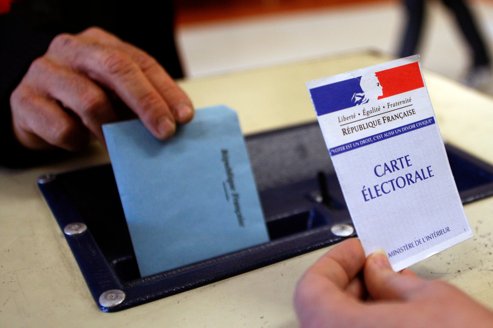A New Voter
新選民
Oscar had just moved to New York City. He registered to vote. A week later, he received his voter card. Now he was a registered voter. He read the voter notice from the Board of Elections. It said to call VOTE-NYC if he had a question. He had a question. He wanted to use an absentee ballot. But the notice said the absentee ballot was for ill people. The ballot was for physically disabled people. He wasn't ill. He wasn't physically disabled. He called VOTE-NYC. "I'm not ill. I'm not physically disabled. But I want to use an absentee ballot," he said. "Give me your address. I'll mail you an application today. You'll receive an absentee ballot before every election," Louis said. "But isn't there a problem?" Oscar asked. "The notice says I have to be ill. I have to be physically disabled." "Don't worry. We'll rewrite that," said Louis

奧斯卡剛剛搬進(jìn)紐約城。他登記投票。一周后,他收到了投票卡。如今,他是一名注冊選民了。他在選舉公告上閱讀了選民注意事項(xiàng)。上面稱如果有問題,請呼叫“VOTE-NYC”。他有個(gè)問題。他希望使用缺席選票。但是公告中說缺席選票只適用于病患。這種選票只適用于身體殘疾的選民。他沒有生病。也沒有身體殘疾。他呼叫了“VOTE-NYC”。他說:“我沒有生病。也沒有身體殘疾。但是我希望使用缺席選票。”路易斯說:“給我你的地址。我會(huì)將申請?jiān)诮裉爨]遞給你。你將在選舉之前收到缺席選票。”奧斯卡說:“不會(huì)有問題嗎?”事項(xiàng)上說選民必須患病,或是身體殘疾才能獲得。”羅伊斯說:“不要擔(dān)心,我們會(huì)重新寫的。”
譯文屬可可英語原創(chuàng),未經(jīng)允許,不得轉(zhuǎn)載。











